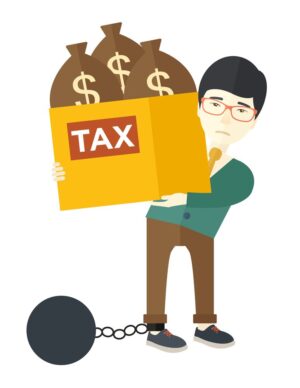 A tax refund is a refund on income taxes paid to the government when your actual tax liability is less than the amount paid. It is basically an interest free loan that a working individual makes to the government throughout the year. In the United States, tax refunds are a major source of short term savings for many working class families. In 2015, the average tax refund topped $2,800. This is a significant amount of money that working families can use to spend on necessary expenses. However, since a tax refund is an asset, it is part of the bankruptcy estate that is administered by a trustee in bankruptcy.
A tax refund is a refund on income taxes paid to the government when your actual tax liability is less than the amount paid. It is basically an interest free loan that a working individual makes to the government throughout the year. In the United States, tax refunds are a major source of short term savings for many working class families. In 2015, the average tax refund topped $2,800. This is a significant amount of money that working families can use to spend on necessary expenses. However, since a tax refund is an asset, it is part of the bankruptcy estate that is administered by a trustee in bankruptcy.
If you are considering filing a Chapter 7 bankruptcy, your tax refund may be used by the trustee to pay off your creditors. Generally, all of your unspent tax refunds from the year prior to the date you filed bankruptcy goes to the bankruptcy estate. All of your tax refunds from the year after the date you filed bankruptcy is yours to keep. If you have tax refunds from the year that you filed bankruptcy, you can only keep the portion that is from income you earned after the filing date. The rest is part of the bankruptcy estate.
However, just because your tax refund is part of the bankruptcy estate does not mean that the trustee will use it to pay off your creditors. You can keep it if you can “exempt,” or protect it. California’s 703 exemptions allow for a “wildcard” exemption which can be used to protect your tax refund. If you are using California’s 704 exemptions, protecting your tax refund can be a little more difficult as there is no “wildcard” exemption. However, there is nothing wrong with using your tax refund on your monthly necessary expenses. Necessary expenses include mortgage or rent, utilities, food, car payments, etc. Be sure to consult an attorney to properly “exempt” your tax refunds.